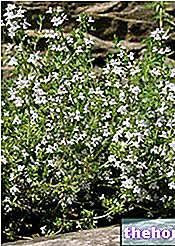
Scientific name
Centaurium minus, synonym: Centaurium erythraeaFamily
GentianaceaeOrigin
Common plant in forests throughout Europe and northern AfricaParts Used
Drug consisting of the flowering topsChemical constituents
- Bitter substances;
- Flavonoids;
- Secoiridoid glycosides (sveroside, centapicrin, svertiamarine, gentiopicrin);
- Triterpenes.
Centaurea Minore in Herbal Medicine: Property of the Centaurea Minore
The minor centaury in infusion has an intense bitter taste, capable of stimulating the appetite and promoting digestion; moreover, it is included in the composition of digestive liqueurs and herbal teas also provided for by the Pharmacopoeia.
The minor centaury is indicated in the presence of anorexia (poor appetite), gastric atony, dyspepsia, fever and liver and gallbladder diseases.
Popular tradition also ascribes to the centaurea hepato-biliary purifying properties, which would make it quite useful in the presence of jaundice and hyperuricemia.




























